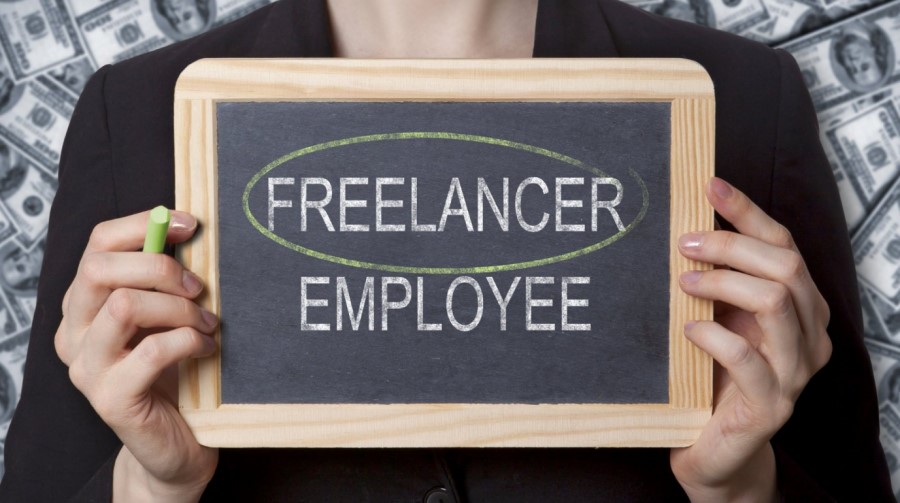In today’s economy, freelance work is on the rise. With so many people working independently, it’s important to take the necessary precautions to protect yourself and your business. Business insurance for freelancers is a vital part of protecting your livelihood, and it’s something you should consider. Let’s find out the benefits of business insurance for freelancers with businesskd!
The benefits of business insurance for freelancers
Freelancers are self-employed individuals who work on a project-by-project basis, often for multiple clients at once. While freelancing offers flexibility and independence, it also comes with certain risks that traditional employees may not face. This is where business insurance for freelancers comes in.
If you make a mistake or an error in your work that causes harm to a client, you could be held liable for damages. Business insurance can help cover the costs of any legal fees, settlements, or judgments against you.
Knowing that you have insurance coverage can provide peace of mind and help you focus on your work without worrying about potential risks. If you become ill or injured and are unable to work, business insurance can provide coverage for lost income during that time.
Some clients may require that you have business insurance in order to work with them. Having insurance can help you secure more work opportunities and give you a competitive edge in the freelance marketplace.
Business insurance can cover damages to your property, such as your computer or other equipment used for your work. Having business insurance can add credibility to your freelance business, showing that you take your work seriously and are committed to protecting yourself and your clients.

The different types of business insurance for freelancers
As a freelancer, you are responsible for managing your own business and finances, which means you need to protect yourself against potential risks. Here are some types of business insurance that are important for freelancers to consider:
Professional liability insurance: This type of insurance, also known as errors and omissions (E&O) insurance, provides protection against claims of negligence or mistakes in your work. For example, if a client claims that your work caused them financial loss or harm, professional liability insurance can cover the costs of legal fees and settlements.
General liability insurance: This type of insurance provides coverage for bodily injury, property damage, and advertising injury. For example, if a client trips and falls while visiting your home office or if you accidentally damage a client’s property while working on their project, general liability insurance can cover the costs of any resulting legal fees or damages.
Business property insurance: If you own or rent a space to work in, such as a home office or coworking space, business property insurance can protect your equipment and other business property against damage or loss.
Business interruption insurance: This type of insurance can provide coverage for lost income if your business is temporarily unable to operate due to a covered event, such as a natural disaster or theft.
Health and disability insurance: As a freelancer, you do not have access to employer-sponsored health insurance or disability benefits. It’s important to consider purchasing these types of insurance to protect your health and income in case of illness or injury.
The types of insurance that are important for freelancers will vary depending on your specific business and work situation. It’s important to carefully consider your risks and insurance needs and speak with an insurance professional to find the right coverage for your business.

How to identify and choose the right business insurance for your business
1. Assess your risks: The first step is to identify the risks your business faces. Consider the type of work you do, the equipment you use, and the clients you work with. For example, if you work from home, you may not need coverage for a commercial property, but you may need liability insurance in case a client is injured on your premises.
2. Understand your options: There are several types of business insurance for freelancers, including general liability insurance, professional liability insurance, and business property insurance. Each type of insurance covers different risks, so it’s important to understand what each policy covers.
3. Choose the right coverage: Once you understand your risks and options, you can choose the right coverage for your business. For example, if you provide professional services, such as consulting or design work, you may need professional liability insurance to protect against claims of errors or negligence. If you own a vehicle that you use for your business, you may need business vehicle insurance to cover accidents that occur while you are driving for work.
4. Compare policies and prices: Once you have identified the coverage you need, it’s important to shop around and compare policies and prices. Consider factors such as the deductible, coverage limits, and premiums.
5. Consult with an insurance agent: Finally, consider consulting with an insurance agent to help you navigate the complexities of business insurance. An agent can help you understand your risks and options, and can recommend policies that are tailored to your specific needs.
Business insurance can help protect freelancers from unexpected accidents or incidents, as well as from lawsuits. Above are the benefits and different types of business insurance for freelancers. In addition, we also offer How to identify and choose the right business insurance for your business. Hope our article helps you!

